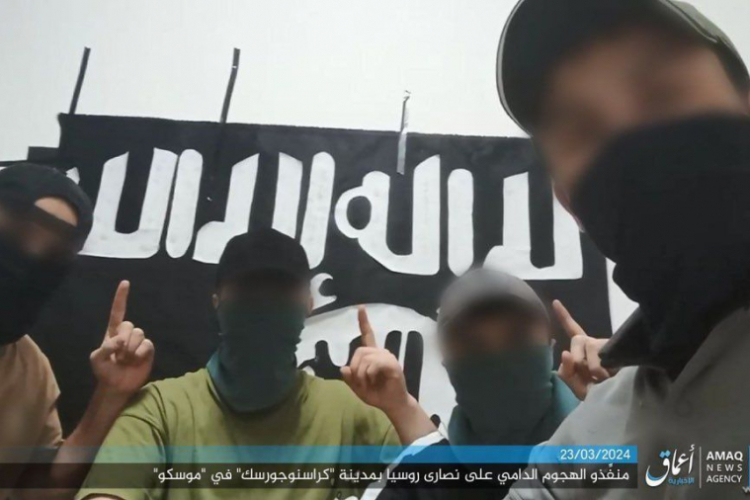The group, known in the Euro-Atlantic area as ISIS, (in Arabic, DAESH) has claimed responsibility for the recent terrorist attack in Moscow. This is reported by TASS, with reference to the post of Abdul Qahar Balkhi, spokesman for the Afghan MFA, on “X”.
Another Russian media source, Коммерсантъ, said that it goes to Vilayat Khorasan, or ISIS-K (a terrorist organization banned in the Russian Federation). This is a group within the broader terrorist network of the banned Islamic State. The word “Khorasan” is a reference to the historical region in Central Asia, which covers parts of modern-day Afghanistan, Pakistan, Turkmenistan, Tajikistan, Uzbekistan and Iran. According to the UN, the terrorist organization numbers more than 4 thousand people, mostly citizens of countries in the region. The core of the group is considered to be the Afghan provinces of Kunar and Nangarhar.
The banned ISIS-K was formed in 2015 and shares the ideological stance of the “mother” banned terrorist IS – it seeks to establish a global caliphate.
A June 2023 UN report (.pdf) identifies the outlawed ISIS-K as “the most serious current terrorist threat in Afghanistan, neighboring countries and Central Asia.”
Politico notes that the Moscow attack is reminiscent of the Islamic State attack in 2015 at the Bataclan theater in Paris, a killing spree that left 90 dead. Friday’s shooting rampage also bore similarities to the 2002 Nord Ost theater siege, when a group of Chechen gunmen and women occupied a packed theater in eastern Moscow and demanded an end to the Second Chechen War. A bungled rescue by Russian special forces, using a deadly sleeping gas, left more hostages dead than were killed by the Islamist gunmen.
The quoted source said the Russian security services estimated 1,700 to 3,000 Chechens, joined by other militants from the North Caucasus, went to Syria to fight. Syria’s moderate rebels always suspected that Russian intelligence agencies were happy to encourage them to go, making it easy for them to get there by giving them passports, both to get rid of them and to disrupt and divide rebel groups battling Russia’s ally Syrian President Bashar al-Assad.
Despite the Islamic State’s claim of responsibility for Friday’s massacre in Moscow, the Kremlin will likely exploit the concert hall killings for propaganda purposes. Putin’s government will likely continue suggesting Ukraine was somehow involved.
According to Latvia’s Delfi, the Russian state-owned TV channels were three times ready to publish Vladimir Putin’s address on the night of March 23, but the message was not broadcast.
Ukrainian Foreign Minister Dmytro Kuleba called such Russian accusations “planned provocation by the Kremlin to further fuel anti-Ukrainian hysteria in Russian society,” with the aim to “discredit Ukraine in the eyes of the international community,” according to a statement from the ministry.
In 19 hours of the terrorist attack, the Russian president finally issued an official statement and declared a day of national mourning. Putin also said that people captured in connection with the terrorist act tried to flee to Ukraine.
The official representative of the Main Directorate of Intelligence Division Andrei Yusov described as “foolish” the statement about Kiev’s involvement in the terrorist attack. Ukrainian President Volodymyr Zelensky noted that Putin and his officials are trying to evade responsibility and shift blame onto someone else.
- Hundreds of Moldovans have been left without their Romanian identity cards due to fictitious residence
- Free subscriptions in public transport – false information, warns RTEC
- The conditions for EU accession reflect the expectations of Moldovan citizens, states the EU am
- Veronica Mihailov-Moraru, from minister to presidential advisor in justice
- The EU has approved the 19th package of sanctions against Russia


